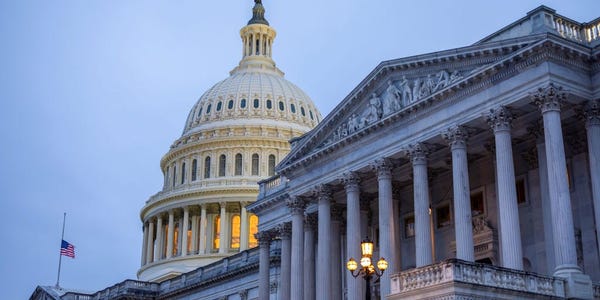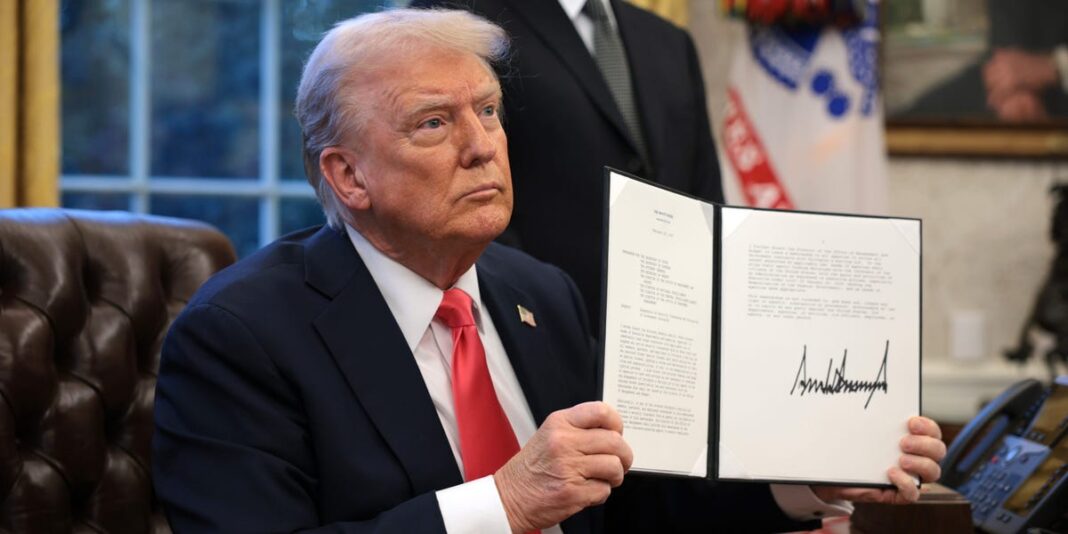“The Trump-Big Law Showdown: A Battle for the Industry’s Future”
In the corridors of power, the stakes are high, and the battle lines are drawn. For the business community, the Trump-Big Law fight has been a defining moment in recent years, with major firms on both sides vying for control of the lucrative world of corporate law. It’s a war for dominance, with the biggest names in the industry going head-to-head in a struggle for influence, expertise, and revenue.

As the US presidential administration has navigated the complex landscape of antitrust law, big law firms like Debevoise & Plimpton, Skadden, Arps, Slate, Meagher & Flom, and Paul, Weiss, Rifkind, Wharton & Garrison have been at the forefront of the battle. Their lawyers are on the front lines, fighting to expand their client base, poach talent, and protect their market share from the threat of consolidation.

Challenging the Executive Orders in Federal Court
Firms’ Arguments Against Chilling Free Speech and Business Operations
Several prominent law firms, including Paul Weiss and Perkins Coie, have found themselves in the crosshairs of President Donald Trump’s administration over their perceived activism and support for diversity, equity, and inclusion (DEI) initiatives. These firms have countered that the executive orders issued by Trump are an attempt to chill free speech and interfere with their business operations, especially in terms of their ability to represent clients in federal settings. Paul Weiss, for instance, argued that the executive order was an overreach that would stifle free speech and create a chilling effect on their clients’ rights to representation. Similarly, Perkins Coie has emphasized that the executive order’s impact on their work extends beyond just the loss of security clearances and access to federal buildings; it also affects their ability to provide legal services to clients who require such access.
Potential Outcomes and Their Impact on Legal Practices
The potential outcomes of this legal battle could have far-reaching consequences for the legal industry. If the courts rule in favor of the firms, it could set a precedent for limiting the extent to which the executive branch can impose sanctions on law firms based on their political or social positions. Conversely, a ruling in favor of the administration could embolden future administrations to impose similar pressures on firms that take positions contrary to their political views. This scenario could lead to a significant shift in how law firms approach DEI initiatives and their willingness to represent clients with controversial political positions.
Strategic Considerations and Legal Tactics
The Role of Pro Bono Work and Policy Changes in Settling with the Administration
One of the key strategies employed by some firms in negotiating with the administration involves offering to provide pro bono work for causes aligned with the president’s agenda. Paul Weiss, for instance, reached an agreement with the administration that involved a commitment to provide $40 million in pro bono services, among other concessions. This approach has been seen as a way to mitigate the immediate impact of the executive orders while avoiding the broader implications of a prolonged legal battle. Other firms, however, have been more resistant, arguing that such a compromise could undermine their standing and credibility in the legal community.
Court Rulings and Their Implications for Other Firms
The court rulings that emerge from this conflict will likely provide critical guidance to other law firms on how to navigate similar situations. If firms that challenge the executive orders succeed in court, it could embolden other firms to take a more robust legal stance against any future executive actions that infringe on their freedoms and business operations. This could also prompt a change in how firms approach their relationships with government clients and how they manage potential conflicts of interest that could arise from representing clients with controversial political stances.
Broader Implications for the Legal Industry
Impact on Law Firms’ Diversity and Inclusion Initiatives
The executive orders by Trump have placed significant pressure on law firms to reconsider their DEI policies, which are often central to their corporate culture and recruitment strategies. The president’s criticism of these initiatives as “divisive” and “anti-American” has prompted some firms to reevaluate their commitment to DEI. This reevaluation could lead to a broader shift in the legal industry’s approach to DEI, potentially affecting the diversity of the legal workforce and the inclusivity of the legal environment. The conflict between DEI policies and the administration’s stance highlights the complex legal and ethical dilemmas faced by law firms as they navigate between their values and the political climate.
Future of Federal Contracts and Legal Representation
The Trump administration’s actions against these firms also have significant implications for the future of federal contracts and legal representation. Firms that are blacklisted or sanctioned by the administration may face difficulties in securing federal contracts or providing legal services to federal clients. This situation affects not only the firms directly involved but also those that might be wary of engaging in practices that could draw similar scrutiny from the administration. The effect on client retention and firm reputation could be profound, with firms needing to strategically navigate these challenges to maintain their client base and market position.
Conclusion and Forward-Looking Analysis
The Long-Term Effects of Trump’s Actions
The long-term effects of Trump’s actions against these law firms could be substantial, possibly leading to a reevaluation of how firms navigate political landscapes. The potential long-term damage to firm credibility and client relationships could reshape the business models and practices of many law firms. Recommendations for navigating political turmoil include enhancing transparency in firm policies, strengthening client communication, and developing contingency plans for dealing with potential political backlash. To maintain client trust and operational continuity, firms must strike a delicate balance between their core values and the political realities of their operating environment.
Conclusion
The Trump-Big Law Battle Heats Up: What’s at Stake and What’s Next
The ongoing battle between former President Donald Trump and several top law firms has left the corporate world on edge. In our in-depth analysis of the situation, we’ve dug into the key points and main arguments presented by both sides. As it stands, Trump has filed lawsuits against several firms, including Baker McKenzie, Latham & Watkins, and Paul, Weiss, Rifkind, Wharton & Garrison, among others. These law firms, in turn, have denied any wrongdoing, claiming that Trump’s accusations are baseless and an attempt to intimidate them. Our analysis reveals that these firms have indeed been involved in various investigations and lawsuits related to Trump’s dealings, but the extent of their involvement remains unclear.
The significance of this issue extends far beyond the Trump presidency. It speaks to the delicate balance of power between the executive branch and the private sector. If Trump’s lawsuits are successful, it could set a worrying precedent for future administrations, potentially stifling free speech and undermining the independence of law firms. On the other hand, if the law firms emerge victorious, it could reaffirm the importance of a robust system of checks and balances in the United States. Regardless of the outcome, one thing is certain: this battle has far-reaching implications for the business world and the very fabric of our democracy.
As we move forward, it’s essential to remain vigilant and continue to monitor this developing story. The Trump-Big Law fight is a microcosm of the larger tensions between government and corporate interests. As we navigate this complex landscape, one thing is clear: the stakes are high, and the consequences of this battle will be felt for years to come. So, we ask: will the rule of law prevail, or will the Trump presidency’s legacy of chaos and obstruction continue to shape the business world?
